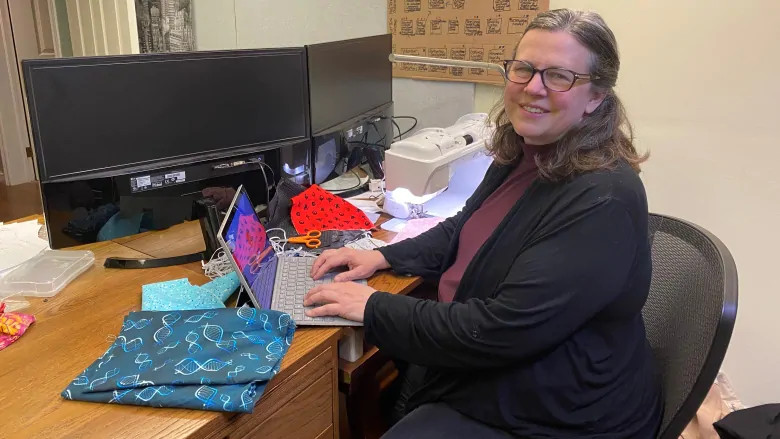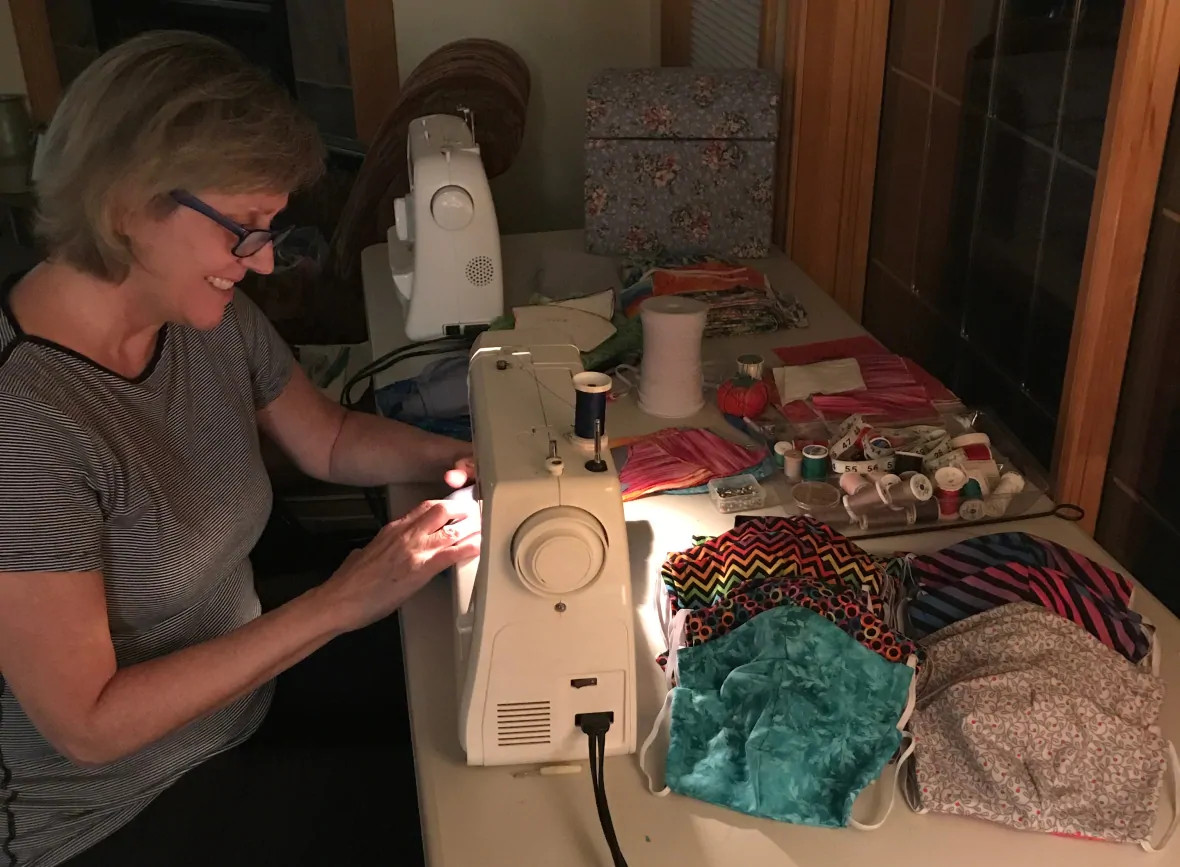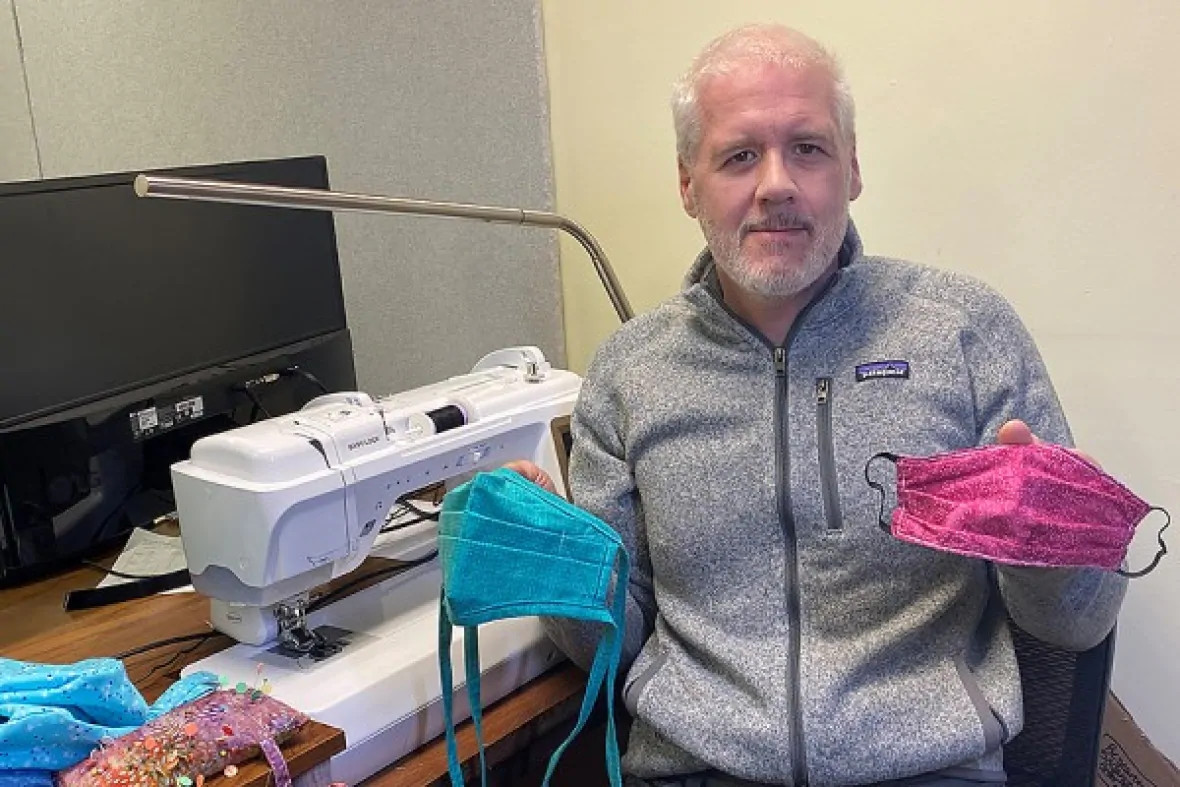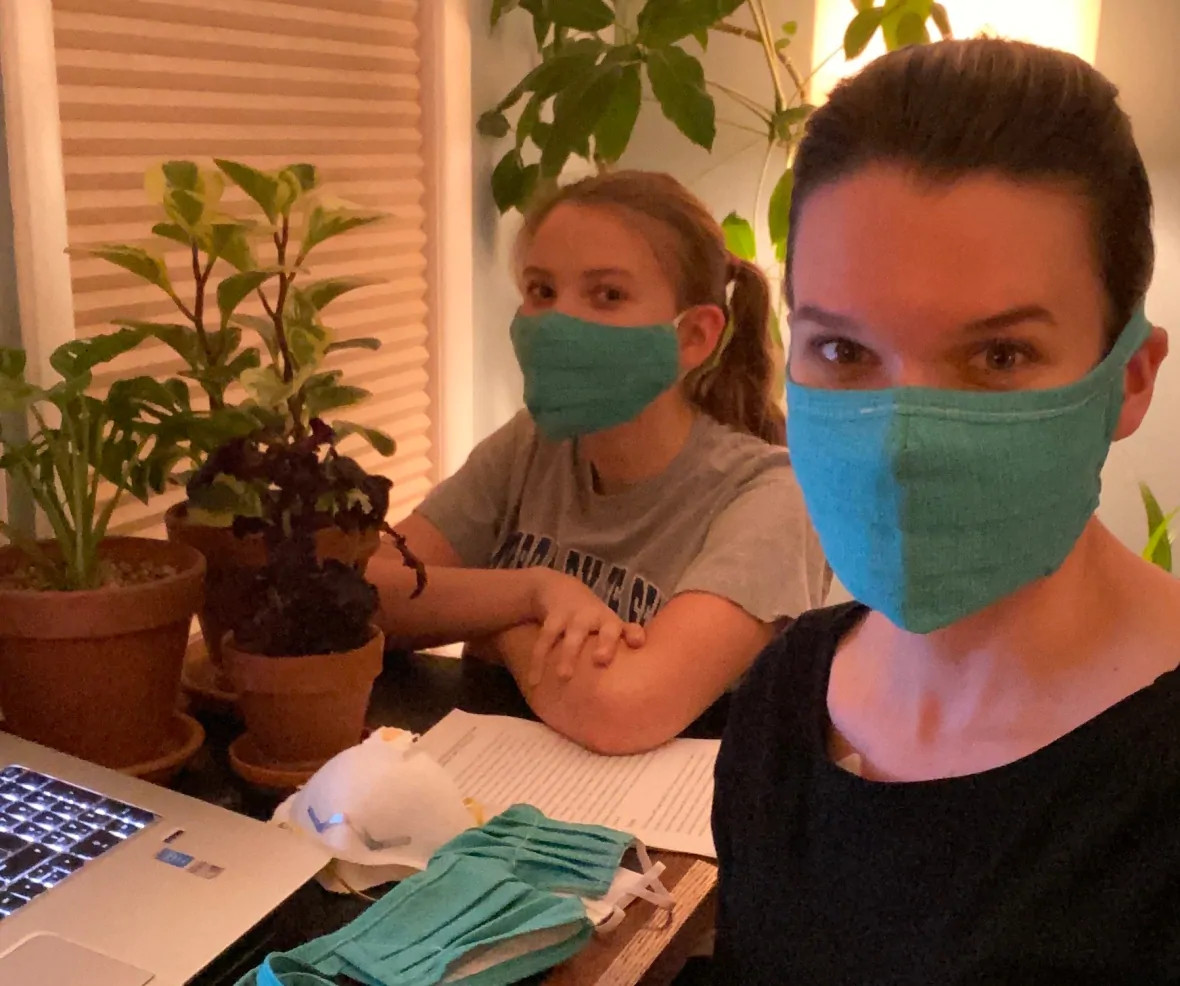May 21, 2020

Rebecca Rudman, one of the founders of the Windsor Essex Sewing Force,
has been stitching masks during the COVID-19 pandemic and giving
them away.
It started with a few people with sewing machines, determined to help during the COVID-19 pandemic. In just a matter of weeks, it has grown into an organization with more than 700 members called the Windsor Essex Sewing Force — and 'force' is a good way to describe it.
Volunteer sewers began working together to provide masks and scrub caps to health-care workers, after calls for personal protective equipment started coming in the early days of the pandemic. The team has made more than 10,000 items, since they've been counting, which have been given away for free.
"In a pandemic or really any emergency little groups like ours [were ready to help]. W e already have boots on the ground, machines threaded," said Rebecca Rudman, who helped put this group together.
"Many different sewing groups popped up and were making masks. We realized we could do more working together."Rudman said the Sewing Force consists of all sorts of people. Some had extensive sewing experience making apparel, some were part of quilting groups, some just wanted something to do, some are students and many were seniors tucked in for isolation looking for something to do.
"The fabric came from volunteers' own sources, so they've given away their time and also their fabrics," said Rudman, explaining that many people needed help getting supplies from the start. "Our ability to make these masks is limited by the fabrics that people have in their homes, so now we're gearing up to raise more funds and be able to get more resources to sewists so they can keep sewing."
Rudman said she's been surprised by the demand for the scrub caps and face masks, which are given to health-care professionals. The caps and face masks can be requested through the group's website.

Leslie Byrne has donated the masks she makes to the health-care workers who attend to
her during her cancer treatments.
She's also taken aback by the stories of some of the volunteers.
Leslie Byrne is one of those people. She's currently battling cancer and has made hundreds of masks herself.
"She alone has made 350 masks and has actually given them to her own nurses while undergoing cancer treatment," said Byrne. "That's the kind of person we have sewing ... She just shows the heart of people in our community. She's dynamic."
Science behind the work
Rudman said her organization has learned a lot based on research about the types of mask designs that work best for health-care workers.
"What we're getting out of it is more than just money," she said, explaining the amount of expertise and consultation with the community that's gone into the designs of the masks.
Ken Drouillard, a professor at the Great Lakes Institute for Environment Research at the University of Windsor was the principal investigator on the homemade mask project that received a WE-SPARK Health Institute grant.
Drouillard — who's also married to Rudman — dove into this project in a different sort of way.
"She asked me 'What can I do to make a better mask' and my immediate thought, because I run an accredited lab, is 'How do you implement a quality control program?'" said Drouillard.
He immediately went to work learning all he could about personal protective equipment and what the differences are between surgical-style masks like those being sewn by the force, and what makes them function well compared to an N95 mask for example.
"We know that we can't duplicate an N95 mask, those are really specialized pieces of equipment," said Drouillard. "However, homemade masks can be really, really effective with transmission control."
Drouillard and the team found the best mask designs after enlisting the expertise of local hospitals including an infectious disease specialist, and a health and safety officer.
Four mask designs were selected and two were clearly preferred by the experts, said Drouillard. Right now the group is starting to develop the patterns and instructions to those designs which they will then make public. They'll also have details about the best fabrics to be used.

Ken Drouillard, a professor at the University of Windsor’s School of the Environment,
led a research project to help the Windsor-Essex Sewing Force find the best materials
and patterns to make masks for health-care workers.
Because these masks are being donated to health-care institutions we want to ensure they are sustainable so they can be routinely decontaminated, washed and reused as part of the process," said Drouillard.
Volunteers doing what they do best
The Windsor Essex Sewing Force has a strict policy that they do not financially gain from their donated items and don't sell products in any way, said Rudman.
Instead, they rely on donations of fabrics and materials. They hand out the homemade goods to the health-care workers who formally request them.
"They treat their mask and scrub caps with the same appreciation and care as the people who have received the quilts I've made them," she said.
The group has started reaching out to dentist offices and other health-care professionals, hoping to equip them with the items next.
"Right now we're sewing for health-care workers and the settings they are in," she said.

Another founder of the group, Karen Harris, right and her 13-year-old daughter
Sarah wear their mask prototypes that they have been making.
For now, there are no plans to give away masks to the public because the demand is so high for those on the front lines. However, Rudman hopes to make the patterns available for anyone to use very soon so that people can make their own.
Rudman said it's important that everyone has a mask for themselves, and she routinely reminds her volunteers.
"The first mask you make should be for yourself and your household because you are highly valuable."
Courtesy: https://www.cbc.ca/news/canada/windsor/windsor-essex-sewing-force-ppe-1.5574306






